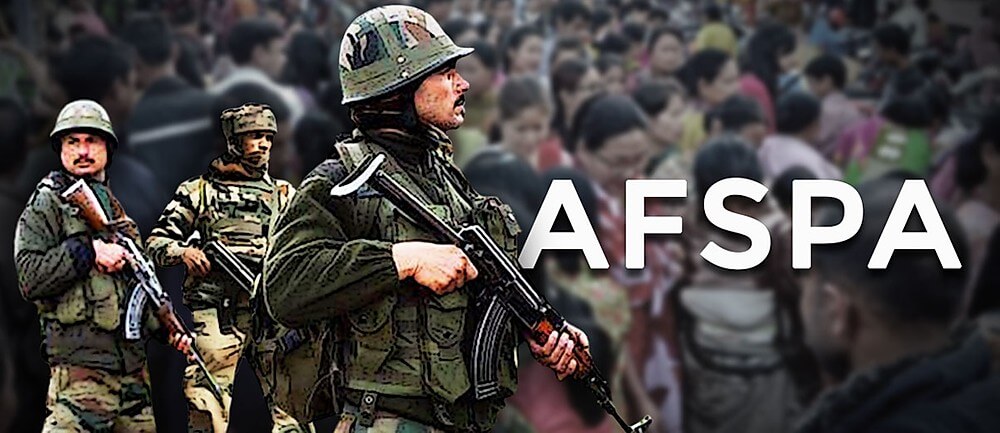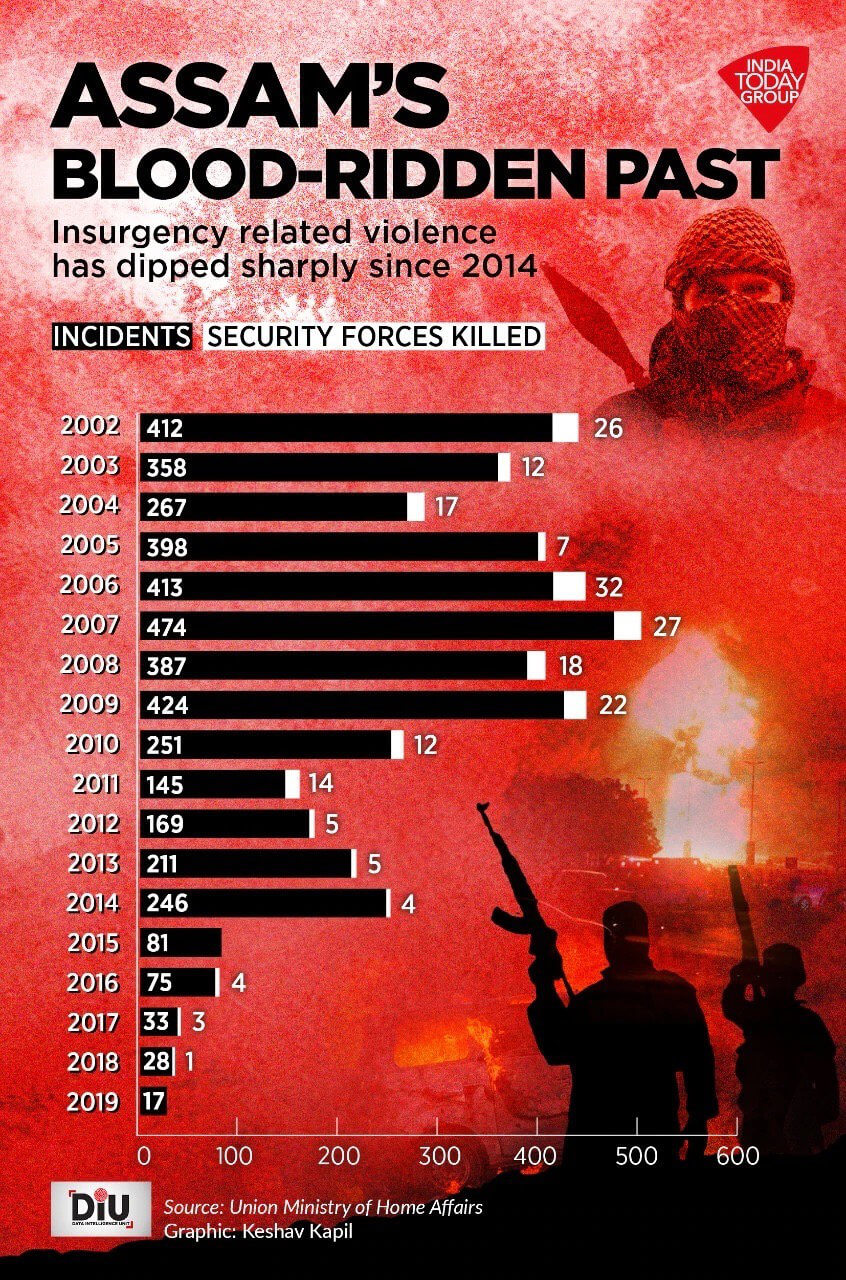AFSAP Under Siege, Again
April 24, 2022 | Expert Insights

Often touted as “draconian”, AFSPA is making headlines owing to the withdrawal of the legislation from parts of Nagaland, Assam and Manipur. The move comes in an aftermath of an incident wherein 16 civilians were killed in a firing incident during a counter-terrorist operation by Army's Special Forces in Nagaland. AFSPA had been in force in some parts of Assam, Jammu and Kashmir, Manipur (except Imphal), and had been previously revoked in Meghalaya (2018) and Tripura (2015).
Background
Armed forces Special Powers Act (AFSPA) was a British brainchild enacted to enable the use of the Indian Army during the 1942 Quit India movement. After Independence, the Act remained in suspended animation till the newly independent country faced challenges to its sovereignty and territorial integration. Nagaland was in the throes of an armed rebellion beyond the capacity of local law enforcement agencies, and Delhi rushed the Army to control the rapidly deteriorating situation. Armed Forces do not have powers of seize and arrest or permission for the use of lethal force, and in the difficult terrains of the North East, judicial officers and police posts were far and few, hence the British era AFSPA was invoked as an enabling law.
AFSPA enables the deployment of the military with the onus to bring back law and order in the affected state, designated as a "disturbed area" in the Act. It provides police powers, including the right to use lethal force to military personnel. It provides armed forces protection from legal action by the local state government which is subject to the approval of the Central government, under whose authority the armed forces have been deployed to assist the state government.
Analysis
The objective of AFSPA is to provide considerable freedom of action to the Armed Forces to operate successfully in insurgency torn areas. However, there are often allegations of misuse of the Act. The allegations include fake encounters, extra-judicial killings, custodial tortures, sexual violence and unwarranted detentions.
The most contentious section of the Act is Section 4, which allows the use of lethal force to the extent of causing death against any person. Under normal circumstances, when the Armed Forces are requisitioned in aid of civil authorities, the right to use lethal force is subject to written permission by a magistrate.

The allegations around AFSPA have been scrutinized by several judicial and executive committees in the past. Justice Jeevan Reddy committee in 2004 called for the repeal of the Act and suggested alternate measures to prevent insurgency and restore order in case of disturbances. A similar suggestion was made by the Second Administrative Reforms Committee under Veerappa Moily. The Justice Verma committee highlighted the need to review AFSPA and stated that “Systematic or isolated sexual violence, in the process of internal security duties, is being legitimized by AFSPA". The committee suggested that in order to overcome jurisdictional issues, military personnel guilty of sexual offences in conflict areas should be tried under ordinary criminal law.
A pertinent PIL was filed against 1,528 “fake encounters” in Manipur by the armed forces in 2013. The Hon'ble Supreme Court appointed a judicial committee to look into these extra-judicial killings under Justice Santosh Hegde. The committee investigated six sample cases and declared them to be fake, albeit with the use of disproportionate force. The report stated that the Act fails to provide protection to the civilians against its misuse. The Supreme Court held that army men deployed in disturbed areas were not above the law.
Counterpoint
The military considers AFSPA as a cornerstone in its fight against terrorism, insurgency and militancy. The authorities cite cross-border terrorism, import of militants and transnational terrorist groups as the reason for declaring vast swathes as ‘disturbed areas’ enabling the use of AFSPA.
The military argues that AFSPA enables them to maintain internal security for extended durations stretching over decades in difficult circumstances. While operating under tough and politically fragile conditions, subordinate functionaries need the freedom of decision making, including the use of lethal force. Hence the Act provides for organisational flexibility with a vast degree of autonomy to prevent managerial paralysis and aid thorough utilization of security capacity. The limitation on prosecution which can only be taken up with the caveat of sanction of the Central government, is aimed to prevent the soldier from being dragged to courts on artificial charges and draw the military in a long judicial process sapping their initiative and morale.
There are certain in-built safeguards like handing over arrested suspects to the police with the least possible delay and opening fire either in self-defence or once it is clearly identified that fire is being drawn from terrorists. In addition, under the directions of the apex court, every soldier operating under the umbrella of the AFSPA must adhere to a set of Dos and Donts, carried in his person.
Assessment
- In a democracy, it is the responsibility of the government to ensure the rights of its citizens and thus, strike a judicious balance between security needs and civil justice. Towards this end, the future shape and use of AFSPA needs a review since the commonly held perception is that the existing safeguards against misuse are inadequate. The need for increased accountability is paramount and a quick start in the direction would be with a serious consideration of expert committee reports.
- In case, due to security reasons, the Central government is unable to repeal the law in its entirety, it can introduce greater safeguards for civilians against excesses and rampant misuses. Coordination with civilian police machinery while carrying out tasks will prevent identity mishaps and secure the locals in the region of conflict. The military needs to work towards national security without disregarding individual dignity and the right to life.
- To dispel accusations of lack of transparency which creates a sense of impunity towards the atrocities committed under the garb of security measures, military offenders could be tried by special courts comprising of both the military and the judiciary for thorough scrutiny and prevention of inbuilt bias when tried by in-house military courts. The fear of a valid and open investigation might serve as a better deterrent for preventing the misuse of the overarching legislation.








Comments